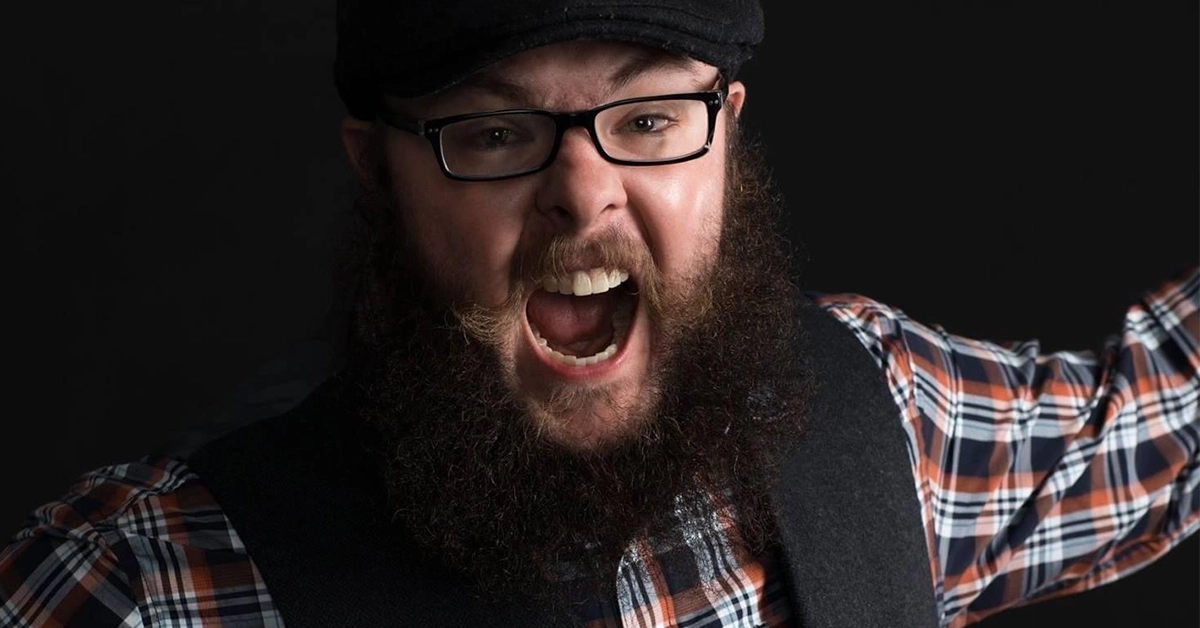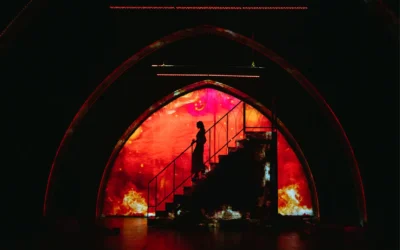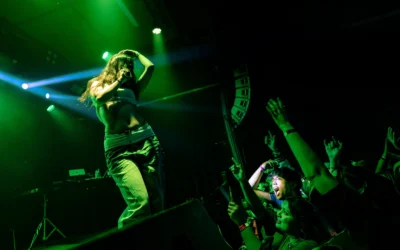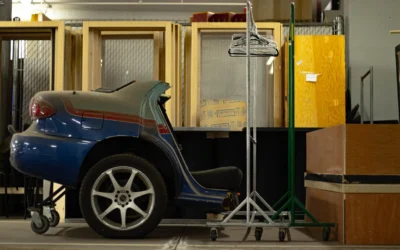A raw conversation shared between two culture editors, one from the past and one from the present.
Before the Griff, Intercamp ran the news around MacEwan. Before the university consolidated into one campus, MacEwan was a community college split into four campuses: The Millwoods campus, the Jasper Place campus, the Alberta College campus, and the City Centre campus — which is the one we stand in today.
Intercamp was the college’s student publication at the time, tasked with covering the news across each campus. For years, the editorial team scoured each campus, looking for a scoop.
And on one spring day in April 2011, a rebirth.
Jenny Feniak, the former managing editor, published a piece titled “A new day has dawned: Your student newspaper is about to come of age,” announcing that, along with MacEwan gaining university status, Intercamp would be turning a new leaf as well. Once staff, faculty, and all disciplines were under one roof, the name Intercamp no longer reflected the state of the institution. And so, Intercamp became the Griff.
Terry Eggleston is one of the many writers at Intercamp who carefully looked after each campus with attentive care, consideration, and passion. He was the arts and culture editor who occasionally dabbled in sports reporting — I can relate to Terry as the current opinion and culture editor. We both share a deep passion for the rich arts and culture scene in Edmonton and on campus.
I’m graduating this coming fall, meaning this will be my last piece in the magazine. I wanted to close my incredible journey with the Griff by writing one last meaningful and heartfelt piece.
What better way to do that than to talk to a Griff/Intercamp elder (haha, Terry isn’t that old — it’s just the wisdom, I swear!)
“Down-on-the-ground stuff”
Eggleston is a man who wears many hats. He never shies away from trying something new.
“I was the kind of kid that, after my first run-through in university, I just found out that I wasn’t a university kid at the time,” he says.
After pursuing a couple of years in the bachelor of arts program at MacEwan, Eggleston decided to dip into music to play the piano. After realizing that the music program wasn’t right for him, he moved up north and became a medic for 10 years.
He then went on to work various retail jobs and became a cook before finally settling into working in radio. Currently, he is the promotions coordinator at Corus Entertainment which is another role he naturally fell into.
Eggleston never went to school for journalism. Working for Intercamp during his uni days served as a catalyst for his love for storytelling. “I’ve been writing for papers since high school and tried to throw in the contribution into my community papers and all that kind of stuff,” he says. “I just always enjoyed it. Once I got involved in Intercamp, I just kept going with it.”
To him, journalism was always a hobby and a side gig. Before university, he had his heart set on being an archeologist.
“I love history, the discovery of artifacts, and the discovery of cultures. Everybody says something like, ‘Oh, I grew up in the wrong time period,’ and all that other stuff. I constantly say that I belong in the 20s or 30s,” he laughs.
To Eggleston, the possibilities were endless, and he was unstoppable. “I didn’t look at anything outside of school as if it was too difficult to attain,” he says. “[Journalism] was just something that I looked at with a wide-open view, and it turned out to be a really awesome thing.”
Eggleston did what many of us university students only hope to have the gusto for after graduating: grabbing the workforce by storm, and shedding the fear of trying and failing and trying again.
He sums up his work ethic best: “I like down-on-the-ground stuff.”
Where the magic happens
Eggleston has both found and created magic many times throughout his life. One of the many retail jobs he found himself in was being a cast member at a Disney Store in Edmonton, where he performed entertainment and magic. This was a cherished time in his life.
“Magic is the Disney term for experiences,” he says. “There’s no better way to describe it than magic as the way that you feel when you go into a Disney Store and how you feel when you go into a Disney park. It’s much harder to do that when you don’t have a theme park behind you. But we managed to make it work in the stores.”
“Your interview isn’t just about the person; it’s about the conversation you’re having with them.”
Terry Eggleston
He described the enjoyment he felt bringing joy to kids and families who might not have been able to afford the parks. This was the kind of down-on-the-ground stuff he found fascinating.
“You’re really with the public, some of whom can’t make it to the Disney parks,” he says, “Being able to see it from that perspective, and seeing how much of an impact that culture can still make on people it was a very enriching experience.”
And he took that magic into everything he did from then on.
Back in the day, in the field
Writing for Intercamp meant being immersed in all four campuses and the unique energy each of them held. The Jasper Place campus (now known as the Orange Hub) held a special place in Eggleston’s heart. “That campus was actually magical. It was quite literally a building that was designed for the arts programs that were in it.” Allard Hall opened in 2017, taking the fine arts and communications program to the City Centre Campus. Back when it was still the Jasper Place campus, Eggleston enjoyed watching the city transform because he had to travel all throughout Edmonton for this job.
“I’m not trying to date myself, but Edmonton was trying to come out of the 90s a little bit, and they were still struggling to do that downtown in the mid-2000s,” he says, “Walking every day from Alberta College to City Centre was quite a riveting adventure to see the downtown lifestyle and culture in Edmonton, and it was, a very different place even back then.”
As an Arts and Culture Editor, Eggleston formed a connection with the Edmonton Opera. “I constantly tell people kind of as a joke, but as a real thing, I was a season seat member for the opera while I was at Intercamp, which was a great experience and not something you’d expect from a college student.” He recalls returning to the opera on multiple occasions and writing about it for Intercamp.
“Every opportunity that comes your way is exactly that and should be viewed as such an opportunity. So what you do with it after that fact, it’s all up to you.”
Terry Eggleston, promotions coordinator at Corus Entertainment and radio journalist
Recalling fond memories, Eggleston remembers what was called CD day during his time spent with the student publication. “They would give us samples of new artists out new works and stuff like that, and it would be a free-for-all because everybody would want to do it,” he explains. “We’d all review the new albums coming out, and that was… was one of the best days; just throw the CDs out on the table and just like dog piles everywhere.”
Eggleston remembers the student paper feeling like a club. “It was a completely different vibe back then. It was definitely a family dynamic. We fought, we slung words at each other,” he laughs, “and we loved.”
Learn how to talk
The biggest takeaway Eggleston took from practicing journalism was learning how to talk. Much like myself, he used to approach interviews wanting to appear professional and organized. But the more interviews he conducted, the more he realized that “people just wanted to sit and have a cup of coffee and just shoot the shit, you know?”
Eggleston covered the 2023 JUNO awards in Edmonton, and recently, he held a seminar at this year’s NASH 86 conference for student journalists across the country. Working in radio, he learned to be more conversational, which would seem like a natural ability for human beings, but surprisingly, it isn’t.
“Your interview isn’t just about the person; it’s about the conversation you’re having with them,” he says. “The only way you can write a good piece is because you can relate to [your source] so the audience can relate to them too.”
As journalists, we’re in the business of people. Telling their stories, making them feel seen. It’s never about getting a quote, but about forming connections and strengthening bonds in our community.
Always say yes
From one culture editor to another, I asked Eggleston if he had any advice for me as I graduate this year.
When he left the university, he didn’t know what was going to happen because it didn’t follow the “natural” progression of getting an education, a job, having a family, and then dying. When Eggleston became a medic, he started to find his grounding. He always had a passion for health sciences and appreciated being a medic for a while before becoming a cook.
“Every opportunity that comes your way is exactly that and should be viewed as such an opportunity. So what you do with it after that fact, it’s all up to you. Saying yes is what got me where I was,” he says.
“It’s accepting that opportunity and knowing that it’s scary and that it’s not your flow at all. It’s not the way that life was designed, but it’s equally as exciting,” he says. “It’s equally every bit the adventure that you’re going to want it to be, but only if you embrace it to the fullest extent.”
Images provided by Terry Eggleston





0 Comments